BBC2's No More Boys And Girls: Can Our Kids Go Gender Free? explores gender neutral schooling for seven-year-olds
The documentary shows what happens when seven-year-olds are taught to 'forget the differences between sexes'
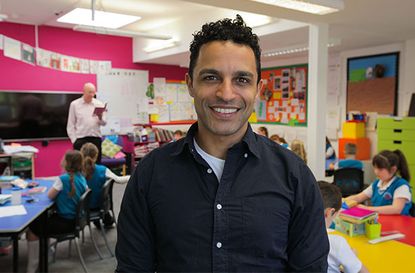

New BBC2 programme No More Boys And Girls: Can Our Kids Go Gender Free? has created a 'gender-neutral' classroom of seven-year-olds.
Not too dissimilar from a previous episode of The Secret Life of Five Year Olds, the show explores how children at Lanesend Primary School on the Isle of Wight react to life without gender stereotyping.
The bold social experiment, led by gender expert, Dr Javid Abdelmoneim, comes at a time when the issue of gender in childhood is an increasingly contentious and complex topic.
According to Dr Abdelmoneim: 'seven-years-old is a key age for children as it's at this point that they're having fixed ideas about a man and woman, but not so fixed that they can't be changed.'
At the heart of the BBC programme are claims made by Dr Abdelmoneim that, apart from having different sexual organs, there are no major physical differences between the sexes at the age of seven, and their brains are almost identical.
He concludes that the explanation for why boys act so differently to girls lies in how they are raised, from the toys they are given to the terms of endearment they hear.
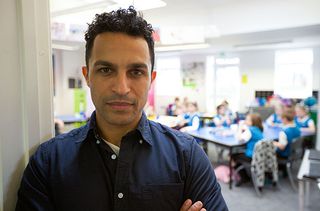
Dr Javid Abdelmoneim during the social experiment
GoodtoKnow Newsletter
Parenting advice, hot topics, best buys and family finance tips delivered straight to your inbox.
'So parents who say it's in their child's nature to act a certain way or like certain toys - it's not, it came from them.'
In the first episode, which airs on 16th August, we see adult volunteers tricked with the children they're playing with. The production swapped the clothes round, so that Sophie became Edward and vice versa, with the point being to see what toys the volunteer adults gave them.
Because Edward is dressed as a girl the adult thinks he wants to play with soft toys. In contrast to this, the volunteers were more physical with the children dressed as boys.
Dr Abdelmoneim warns that the differences girls and boys pick up from a young age lead to gender inequality later in life.
His fears are further proved right when the pupils at Lanesend are asked to describe what sets boys and girls apart.
One boy in the programme, Louis, observes: 'I think boys are cleverer than girls because they get into President easier.'
Another pupil, Kara, says she would describe girls as 'pretty', adding: 'When a woman has a baby she has to stay at home while the man goes out to get money.'
Tiffany says simply: 'I think men are better at being in charge.'
And when it came to self-esteem, 50% of the boys described themselves as 'the best', compared to just 10% of the girls doing the same.
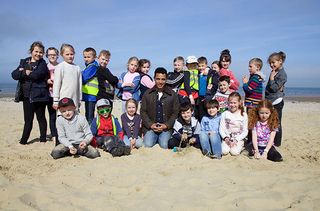
Mr Andre's class on the beach with Dr Abdelmoneim
Dr Abdelmoneim claims that 'every child deserves the same opportunities at life, but unless we start treating them differently that will never happen.'
So, out went the gender-specifics, no more boys-only football matches, books about fairytale damsels in distress and in came the unisex storybooks and mixed sports teams.
The TV production team even went as far as to enforce same-sex toilets, something the class of seven-year-olds protested at loudly.
And they weren't the only ones, as parents of the Year 3 class weren't too happy about it either, although the move still went ahead.
Dr Abdelmoneim said: 'The children didn't like the toilet. The girls were like "oh [the boys] come out with their bits dancing out and they don't wash their hands".'
The documentary also highlighted the teacher's use of gender-specific language. During the first episode Mr Andre was banned from using his usual terms of endearment, 'love' or 'sweetpea' for girls and 'mate' or 'fella' for boys. Each time he did use the words, the children put up a sad face, to show how many times he accidentally used the gender-specific terms in a day.
While there's no denying this documentary provides an interesting insight into gender-specification and its effects, The Sunday Express reported that the BBC has come under fire for using impressionable young children in a 'social experiment'.
Chris McGovern, chairman of the Campaign for Real Education, told the paper: 'There may be a case for legal action against the school and the BBC if any child has suffered psychological harm or distress, either in the short term or the long term.'
'The BBC seems unable to separate fantasy from reality. The fantasy world created at Lanesend Primary School might be permissible in science fiction drama such as Doctor Who, but it can run close to child abuse when translated into real life.'
Tune in to see what the overall outcome of the experiment was. Did the mixed sports stay? Did the loos change back?
The documentary is due to air BBC2 Wednesday 16th August, 9pm.
What do you think? Is this experiment needed or unfair to the children and uncalled for? Tell us your thoughts in the comments box below!
Trusted, informative, and empathetic – GoodToKnow is the ultimate online destination for mums. Established in 2007, our 15-year-strong archive of content includes more than 18,000 articles, 1,500 how-to videos, and 7,000 recipes.
-
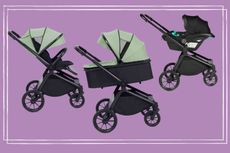 What is a travel system? Baby gear experts explain how they work - and what’s included
What is a travel system? Baby gear experts explain how they work - and what’s includedExperts decode what is a travel system and offer tips on how to find the best one for you
By Charlotte Duck Published
-
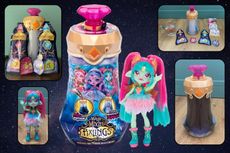 Magic Mixies Pixlings are a bestseller - but are they worth the money? We put this toy through its paces to find out
Magic Mixies Pixlings are a bestseller - but are they worth the money? We put this toy through its paces to find outMagic by name and magic by nature? We review Magic Mixies Pixlings to see if it lives up to the hype
By Sarah Handley Published
-
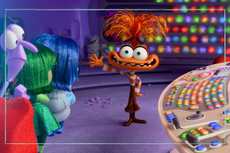 Disney’s Inside Out 2 has a new character – and it’s an emotion we need to talk about with our kids
Disney’s Inside Out 2 has a new character – and it’s an emotion we need to talk about with our kidsEveryone, meet Anxiety.
By Daniella Gray Published
-
 Parents issued urgent warning over fake Bluey episodes on YouTube kids - they're so inappropriate
Parents issued urgent warning over fake Bluey episodes on YouTube kids - they're so inappropriateThe rude rip-off version of the popular children's show has surfaced online among content for kids
By Selina Maycock Published
-
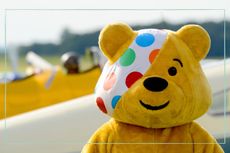 When is Pudsey Day 2023? How to show your support for Children in Need
When is Pudsey Day 2023? How to show your support for Children in NeedFind out when is Pudsey Day 2023 and all other key details about what to expect from this year's Children in Need televised fundraiser.
By Ellie Hutchings Last updated
-
 Parents slam new 'menacing' Thomas the Tank Engine cartoon movie for ‘making their children cry’
Parents slam new 'menacing' Thomas the Tank Engine cartoon movie for ‘making their children cry’By Selina Maycock Published
-
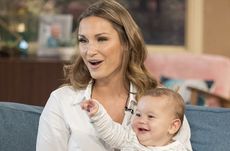 Sam Faiers announces premiere date for the return of her series The Mummy Diaries
Sam Faiers announces premiere date for the return of her series The Mummy DiariesIt's back very soon...
By GoodtoKnow Published
-
 Fern Britton praised for return to This Morning after eight-year hiatus
Fern Britton praised for return to This Morning after eight-year hiatusThe star left when she discovered she was not earning as much as her male co-host
By GoodtoKnow Published
-
 This Morning segment reuniting a school bully with his victim divides viewers
This Morning segment reuniting a school bully with his victim divides viewersWhile some viewers called the story ‘inspiring’ others criticised the segment
By GoodtoKnow Published
-
 Scarlett Moffatt confirms that she will host I'm a Celebrity... Get Me Out of Here's Extra Camp
Scarlett Moffatt confirms that she will host I'm a Celebrity... Get Me Out of Here's Extra Camp'Absolute dream come true'
By GoodtoKnow Published